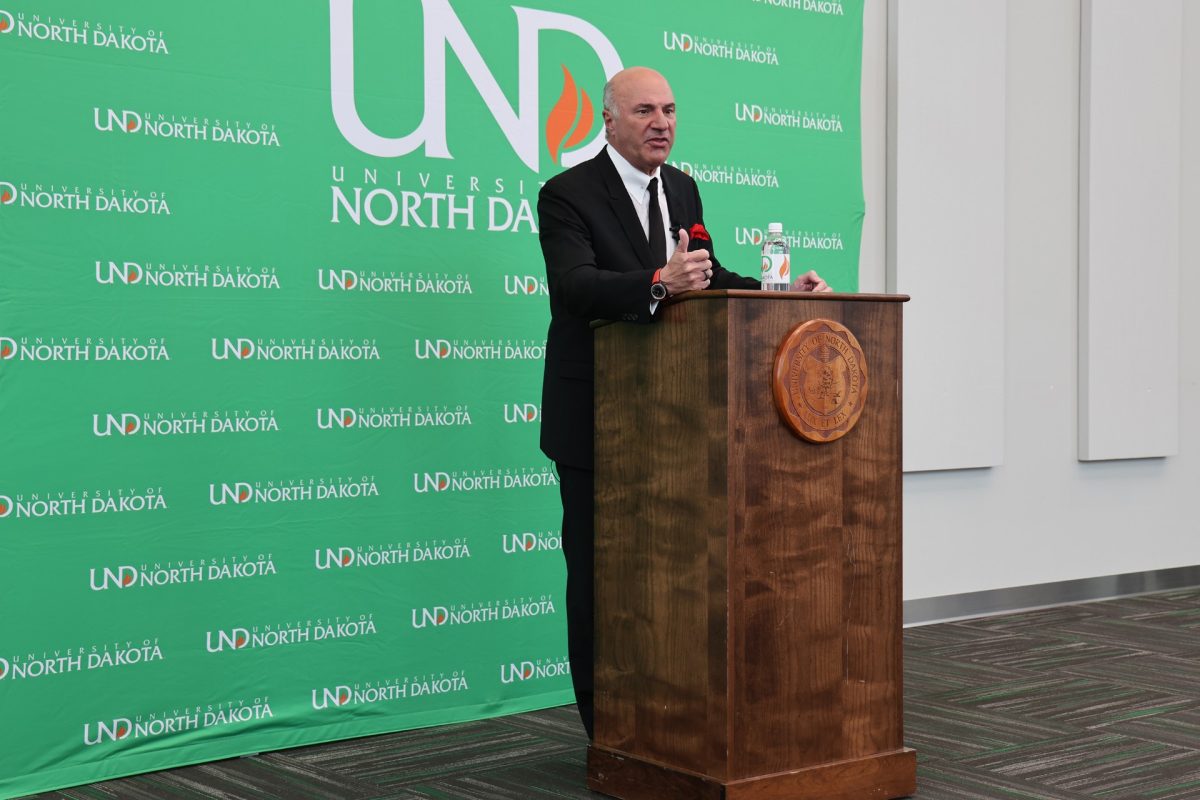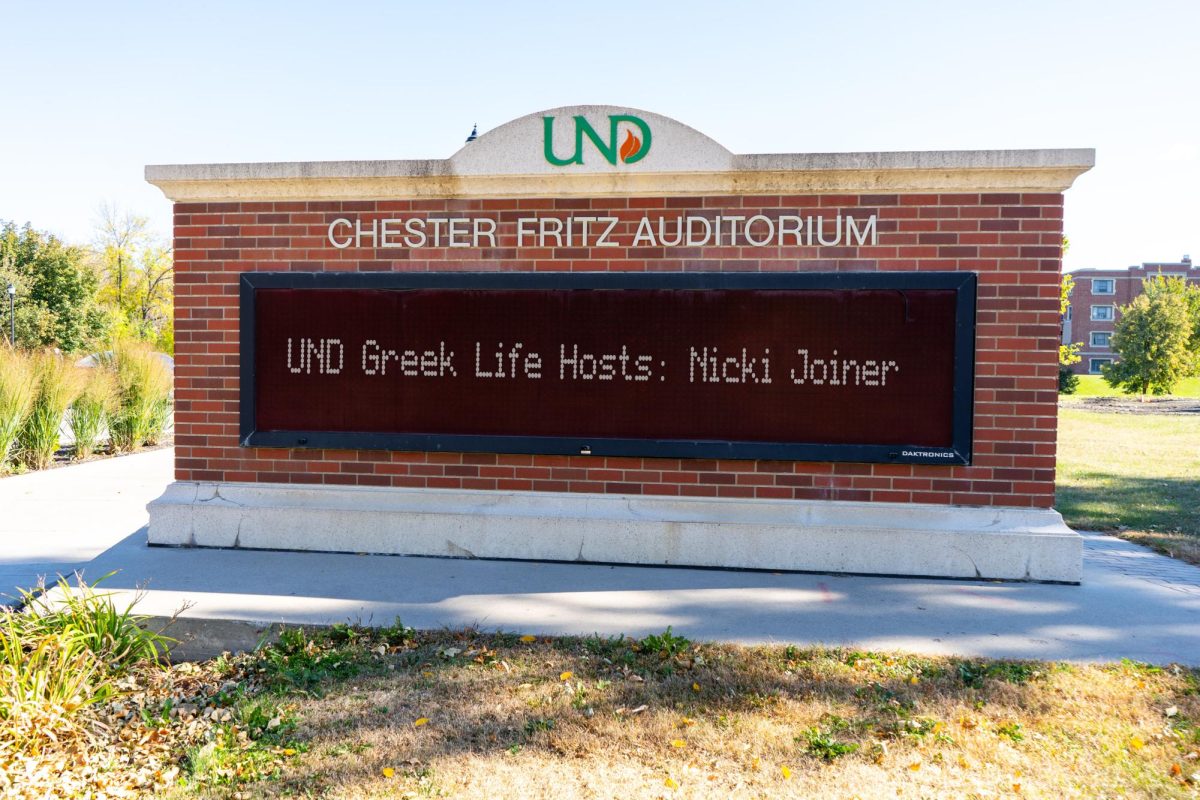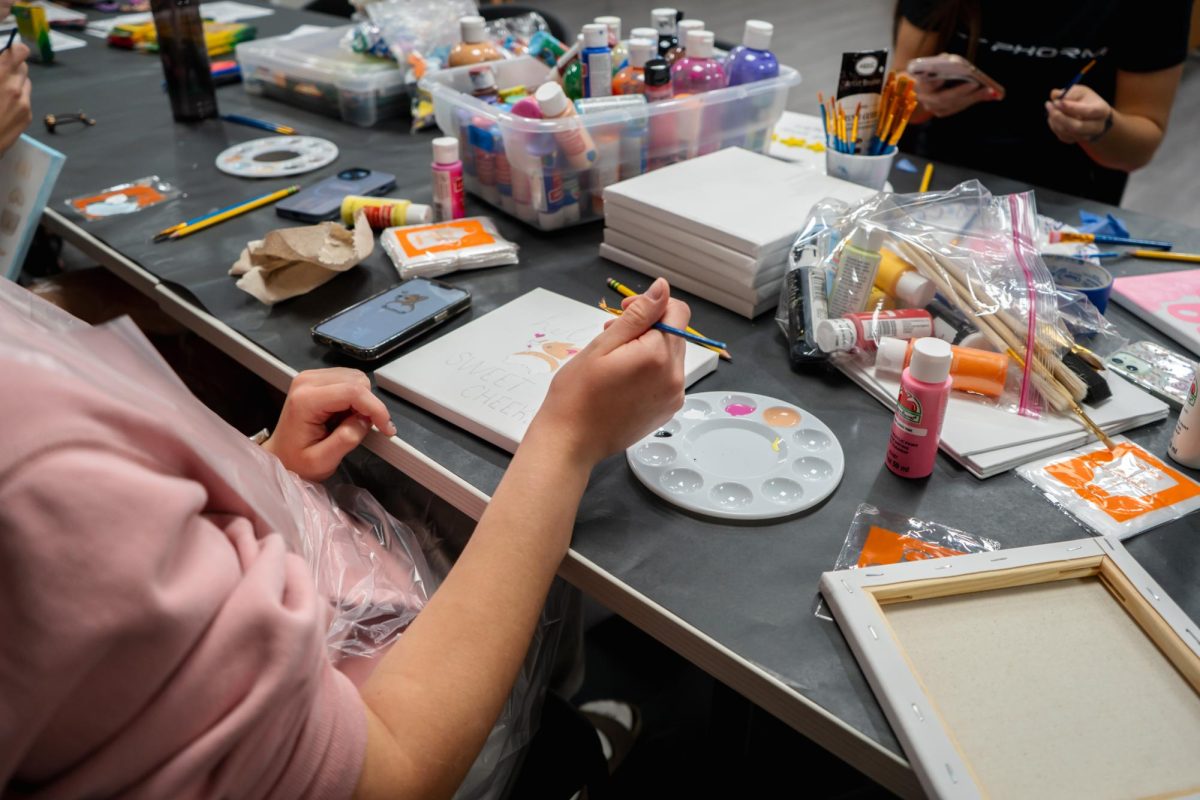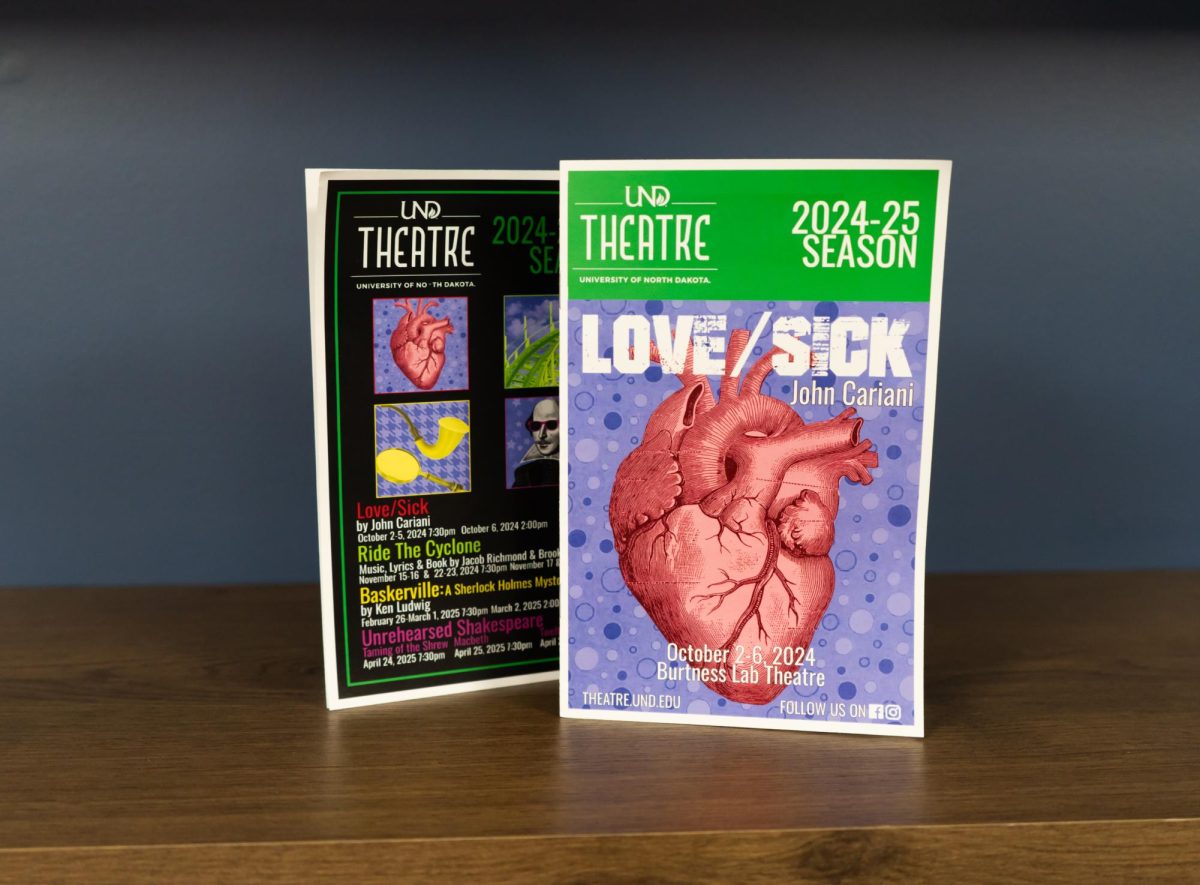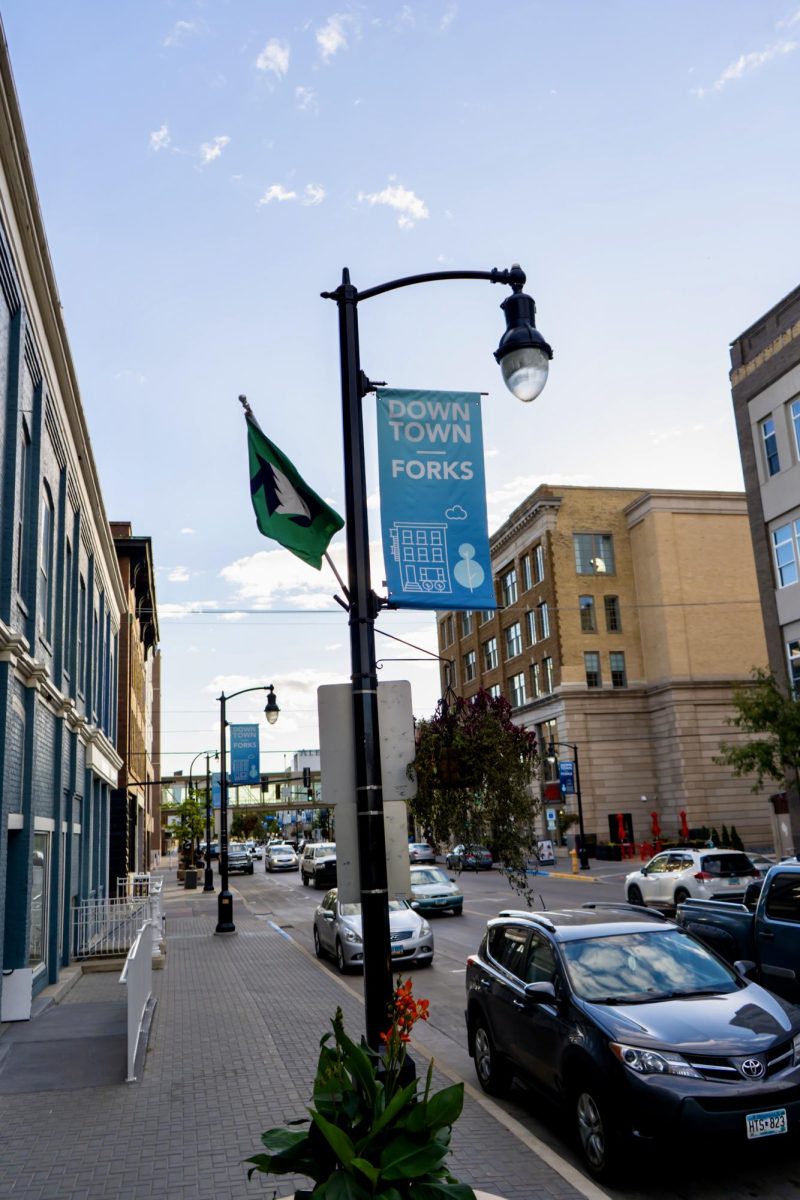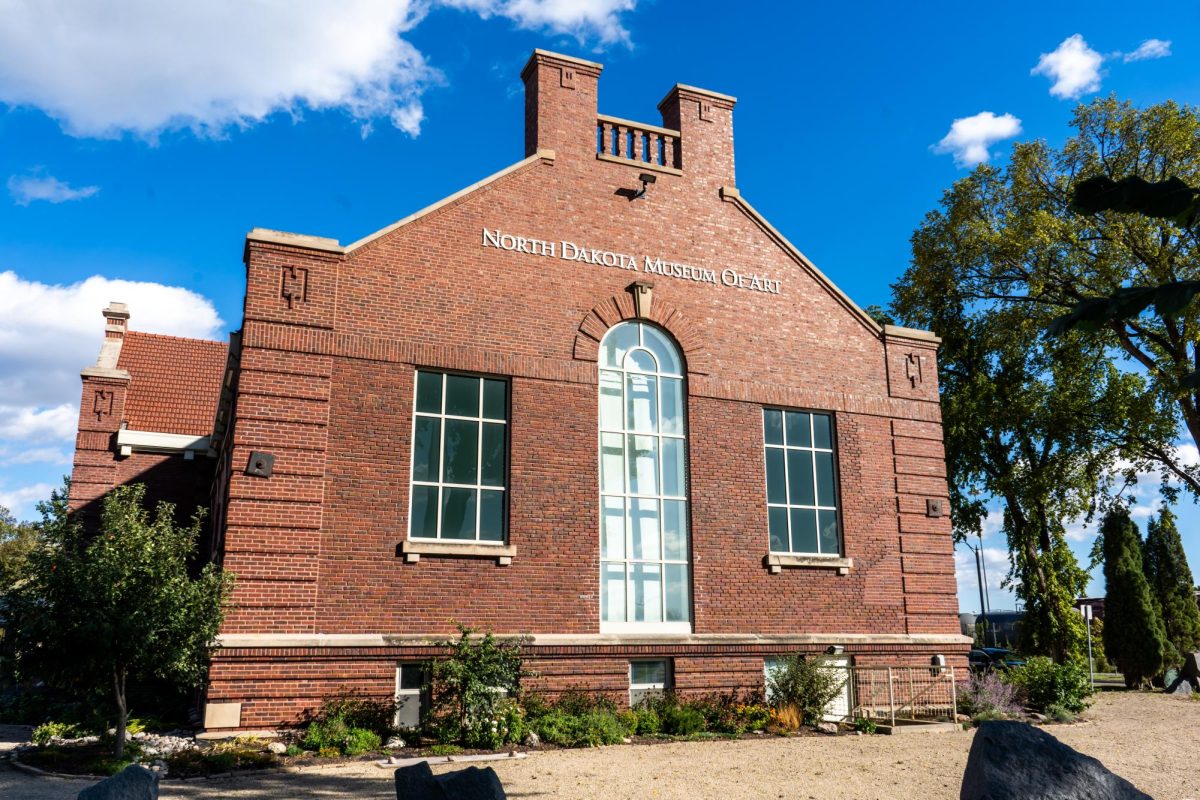“You don’t need people to like you, but you do need people to respect you.”
On an auspicious day, entrepreneur and billionaire investor for Shark Tank, Kevin O’Leary, came to the Nistler School of Business to meet a panel of 12 hand-selected students to discuss his experience facing allegations of fraud discussed in a recent Harvard School of Business Case Study by authors Reza Satchu and Patrick Sanguineti from Oct. 2023. The study talked about Mr. Wonderful’s experience with FTX, a crypto currency exchange, and the resulting catastrophe when it was found that the company was under investigation for allegations of mismanagement of funds. Given 10 minutes to decide whether to go on air, O’Leary, a paid spokesperson and investor of FTX, found himself feeling heat when faced with a pivotal decision, one that could have lasting consequences: would he go public or wait for more information?
Dr. David Flynn, a faculty member in the Department of Economics and Finance, led the student panel. He started off by asking what the panel would think about a career where every decision they make could be held under scrutiny.
Responses from the panel varied. Some acknowledged that it was impossible to get away from scrutiny when your brand is tied to your public life, while others discussed that it is impossible to know the outcome of every decision.
When asked directly, “are you a more risk-adverse person,” O’Leary responded with a lesson in truth. “If you know what you’re saying is the truth…. you don’t have to remember what you said.”
O’Leary then shared an analogy in infidelity, drawing parallels to business and interpersonal relationships, “you will never be trusted again, it’s the same in business… you will get caught” and “that is the end of your relationship.”
The ensuing questions from the panel led to O’Leary being asked how to retain authentic when it comes to one’s personal brand and social media.
O’Leary’s response was simple “the only way to be authentic is you just have to be yourself 24/7.” O’Leary then discussed the mixed blessing of social media, “it’s a great tool to build business with… but it also has a cost,” citing the fallout of Bud Light’s marketing campaign, where they lost 26% of market share, a feat O’Leary says has never been done before.
“You should understand the power of social media… and should respect it for what it is,” O’Leary said acknowledging the value and ability to access anyone he wants to talk with. “That’s the real advantage of the brand, the access. The ability to cut through months of wasted time to get anybody you want to collaborate with.”
The talk eventually turned to the panel being asked what they would do when faced with a decision of consequence, one that has risk and could have lasting effects on their future and credibility with little information on the veracity of the situation. While many agreed with maintaining the brand’s honesty there was one dissenter.
“I think if your business is based off of your credibility and being able to say I always tell the truth, there’s no reason why you shouldn’t be able to go on air.”
“In this case I think the risk of misspeaking something that you might find true, but it might not be 100% accurate; [It] would be a big risk to go on and do that because there’s a no comment at this time doesn’t mean that there necessarily wouldn’t be a comment to come after that.” With the final comment being from the dissenter, O’Leary then gave his perspective.
O’Leary could see the “merit to both sides,” and ultimately, he did decide to join the air and say what he knew. “Don’t spend your valuable energy trying to please everybody. Just be honest to yourself. That will right the boat eventually because you told the truth. That was the thesis upon which I decided to do it.”
To end the talk, O’Leary focused on three key points, the first being social media.
“It is a powerful force that you have to learn how to harness, and you have to understand it and respect it. It can cancel you in a nanosecond or it can give you the power to build a business around it and support a brand. But you must respect its power and not take it lightly.”
The second point was signal and noise. “If you want to pursue a career as an entrepreneur… you have to distinguish what is signal and what is noise,” O’Leary said. “You have to have and develop the innate talent and say, ‘that does not matter to me and that does.”
The third was freedom achieved through entrepreneurship. “Do not pursue entrepreneurship for the greed of money; you will never achieve it, [and] you won’t have it. You must find a path where you are so passionate about what you do that you get wealthy because you are so good at it,” O’Leary said. “You have to find something you really want to work 18 hours a day to get it. When you’re so passionate about. That’s the freedom you now achieve”
“If you think you want to do it, you must do it now… And you will find after two or three attempts one of them will hit.”
Source:
Satchu, Reza, and Patrick Sanguineti. “Kevin O’Leary: Building a Brand in Shark-infested Waters.” Harvard Business School Case 824-095, October 2023
Davíd Moreno is a Dakota Student General Reporter. He can be reached at daví[email protected].


